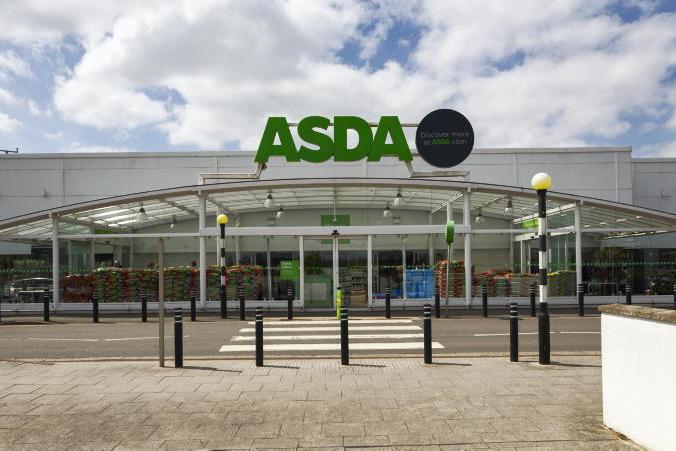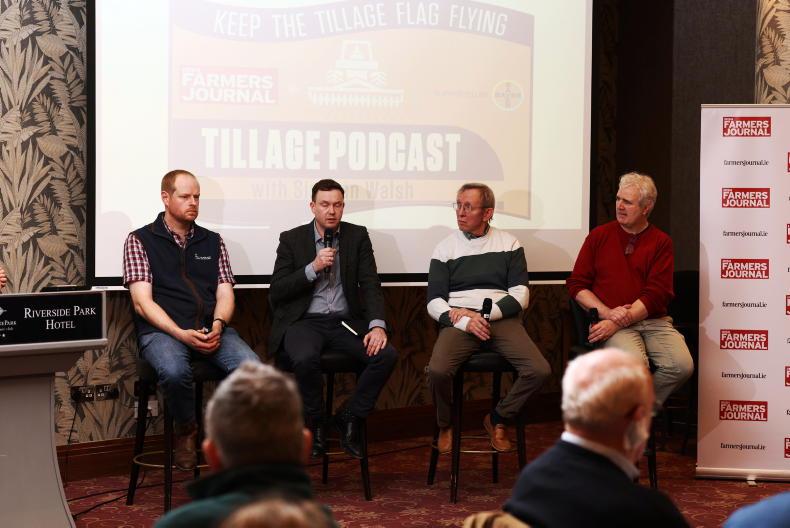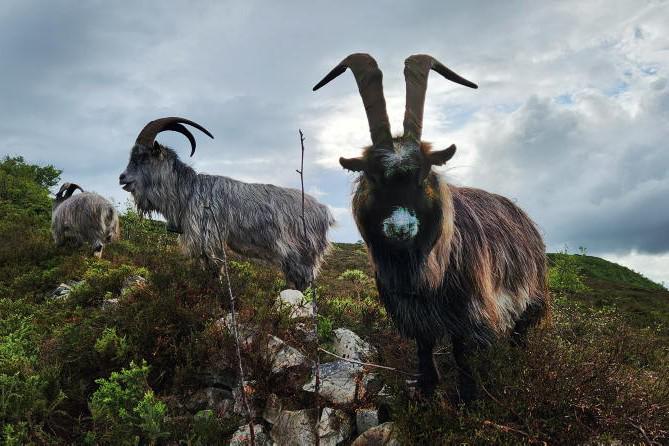Some initiatives are coming to the fore to help showcase these pioneers, such as the hashtag #Agriwomen24 being used to connect women agri-professionals on social media. At Topcon Positioning Agriculture Ireland, we wanted to hear what it’s like for women working in the industry, and to help champion their contribution.
The role of women in agriculture
When people think of agriculture and farming, many will think of male farmers. However, female agri-professionals have been making waves throughout the sector and hold a variety of roles, from farmers and agronomists to managers of agri-machinery businesses and agri-tech innovators. In fact, figures from the Teagasc Education in Vision 2018 report show that women's participation in agricultural higher education is often greater than mens – with some university degree programmes recording 40% more female participants than males. It’s no surprise then, that many women hold high-profile roles within the industry.
High profile business roles
For Anna-Marie McHugh, assistant managing director and public relations officer at the National Ploughing Association (NPA), the industry has come a long way in recognising the expertise of women in agriculture.
“I was born into the agri-sector. My mother, Anna May, held the position of secretary of the NPA and then later MD of the association, so I’ve seen both first-hand and through her how times have changed," she said.
That’s not to say that women don’t still face challenges – either from men talking over you or even quoting females a random price for equipment assuming she won’t know the difference
“Ireland has definitely become more progressive in recognising the talent of females in the industry. There are now so many women in key positions in the agri-sector that, nowadays, people know that females in the industry are a force to be reckoned with.
“However, that’s not to say that women don’t still face challenges – either from men talking over you or even quoting females a random price for equipment assuming she won’t know the difference. It just means women have to make sure their voices are heard, and, at times, be assertive and show men that you know what you’re talking about – although these issues are becoming much rarer these days.”
Managing the farms
It’s not just high-profile business positions that women are holding within the industry either – at all levels, women are making a huge impact. In 2018, Government statistics highlighted that 12% of Irish farms were owned by women, equating to around 16,000 farms across the country, showing just how significant a contribution women make to the day-to-day running of farms across Ireland.
Maeve O’Keefe is a dairy farmer and the CEO of hoof care and roll-over crate business, Inspect 4. For her, the joy of farming comes from its variety. Discussing her love of the job, she said: “One of the best things about farming is that it’s a very nice mix of being outdoors and then doing the office work indoors – meaning that no two days are the same. Being your own boss also has its advantages and disadvantages, as it can be very rewarding, especially in calving season. However, it’s also a huge responsibility. Looking after all the animals and your staff means that you can’t walk away from your duty at the weekend or if it’s raining.”
Being your own boss also has its advantages and disadvantages, as it can be very rewarding, especially in calving season
In Maeve’s experience, modern technology is also helping to combat the stereotypical view of farm work as a male profession. She said: “Farming has changed a lot over the years, but there’s still lots of physical work. Looking after the cows on the farm can be difficult work, particularly if they get an infection in the foot, as you have to restrain the cow to lift their legs and get to the root of the problem. This was something that really bothered me, as I wanted to find a safer way for both the cow and me to do this.”
After talking through the issue with her father, the two created a roll-over crate that uses hydraulics to remove the physical work of restraining the cow. As soon as the cow enters the crate, at the tip of a lever she can be turned over onto her side and fully restrained so that she can’t fall and hurt herself, or cause injury to the farmer. Not only has this helped Maeve on her farm, but after seeing the invention in action, the device was also requested by other farmers across Ireland, leading to the creation of her business.
Automation in farming
There is no doubt that farming can be a physically demanding occupation, however, modern technology is reducing operator fatigue for both men and women in the industry, making the work more accessible for all. Autosteering solutions, Topcon’s X25 or X35 consoles for example, significantly reduce the workload for operators behind the wheel, since they don’t have to steer and exert energy to make best use of the field. The advantages of using technology to save energy in this way cannot be underestimated, as it means that tasks that once required a significant amount of physical strength can now be completed by anyone – offering women in agriculture more opportunities to take on roles they may have once been overlooked for.
Encouraging more women into the industry
For both Anna Marie and Maeve, however, the industry could be doing more to attract women and, in particular, needs to ensure women in agriculture are not typecast. Anna Marie said: “Women are brilliant at understanding the detail in the agriculture sector and identifying very practical ways that the industry can improve, so their achievements should continue to be celebrated more. Agriculture is also an ever-evolving and challenging sector, so it’s important that we showcase how attractive the variety of agricultural roles can be, in order to attract more women to the industry.”
Flexibility is needed to ensure working mothers are able to succeed professionally and carry out the day-to-day childcare tasks, such as school pick-ups, which often fall to them
For Maeve, it’s also important to recognise that women have been helping out on farms and doing difficult farm work for years, yet they would often identify as a farmer’s wife or daughter rather than an agri-professional in their own right.
Addressing the issue of childcare
Both Maeve and Anna Marie also raised the huge challenge that maternity leave and childcare can bring in the agriculture industry. Particularly for self-employed women, flexibility is needed to ensure working mothers are able to succeed professionally and carry out the day-to-day childcare tasks, such as school pick-ups, which often fall to them. Since women often take on part-time roles due to family commitments or are on maternity or childcare breaks when opportunities arise, many miss out on opportunities for career growth and career-changing promotions – a factor that needs to be addressed if the industry is to encourage more women into agriculture professions.
It’s clear that women contribute a great deal to the Irish agriculture industry, holding both senior positions right through to owning, managing and working on farms and related agri-businesses. While there is still much more work to be done to overcome the stereotypical view of farmers being male, the positive stories being shared by women within the industry will help to change this view and encourage more women to consider a role within farming and agriculture.
It’s now up to all businesses to do more to encourage female participation in agriculture, and support and champion those who currently work in the profession.
For more information about Topcon Positioning Agriculture Ireland, visit www.topconpositioning.com/ie/precision-agriculture.









SHARING OPTIONS